Veiled Superheroes
V eiled Superheroes
Islam, Feminism, and
P opular Culture
Sophia Rose Arjana
with Kim Fox
Foreword by
Wajahat Ali
LEXINGTON BOOKS
Lanham Boulder New York London
Published by Lexington Books
An imprint of The Rowman & Littlefield Publishing Group, Inc.
4501 Forbes Boulevard, Suite 200, Lanham, Maryland 20706
www.rowman.com
Unit A, Whitacre Mews, 26-34 Stannary Street, London SE11 4AB
Copyright 2018 by Lexington Books
All rights reserved . No part of this book may be reproduced in any form or by any electronic or mechanical means, including information storage and retrieval systems, without written permission from the publisher, except by a reviewer who may quote passages in a review.
British Library Cataloguing in Publication Information Available
Library of Congress Cataloging-in-Publication Data Available
ISBN 978-1-4985-3652-3 (cloth : alk. paper)
ISBN 978-1-4985-3653-0 (electronic)
 The paper used in this publication meets the minimum requirements of American National Standard for Information SciencesPermanence of Paper for Printed Library Materials, ANSI/NISO Z39.48-1992.
The paper used in this publication meets the minimum requirements of American National Standard for Information SciencesPermanence of Paper for Printed Library Materials, ANSI/NISO Z39.48-1992.
Printed in the United States of America
For Nabra Hassanen and all the other amazing Muslim girls and women in the universe.
Contents
Wajahat Ali
Wajahat Ali
Iboo is flying in the dark purple sky, wearing his Superman costume and cape, heroic and majestic with his toddler right fist raised toward the heavens. Beside her three-year-old brother, baby Nusayba floats with regal grace, her eyes reflecting a glint of sweet fierceness. Shes holding a golden lasso and rocking Wonder Woman gear.
This painting proudly hangs in our family room. I commissioned the talented artist Rusty Zimmerman, my old high school friend, to do a unique superhero portrait of my two kids. If so, Ive left space on the painting for Lil Batman or Batwoman in case the wife wants a third baby. The Trinity will be complete featuring the most iconic heroes of the DC comic book universe.
Now, youd think everyone would find this painting to be absolutely awesome. Surprisingly, its divisive. Many peers believe its childish, unworthy of prime family room real estate, and should be relegated to Ibrahims bedroom, Others are less blunt, more passive aggressive, and some just nod and smile but quietly judge with their eyes.
Comics books are allegedly for kids. According to a college friend, theyre cheap rags that little boys read. What? You? Youre reading these? I was wondering what kid would be on this flight with these? asked an astonished fellow passenger and Aspen Ideas Festival participant when she saw me sit down and read the comic books I had left on my seat. I did so unapologetically. She remained confused.
In the 1950s, comic books were seen as the 10-cent plague. They were cheap, filthy, licentious smut that was degrading and corrupting the minds of our impressionable young men. (Check out David Hajdus excellent The Ten-Cent Plague: The Great Comic-Book Scare and How It Changed America .) It was low art made by even lower people crammed with morally subversive content between the covers. It was threatening because it was so popular, beloved, and influential. Kids and adults loved the horror, the thrills, the shocks, the subtle middle finger to the fear-mongering conservative establishment. From the beginning, comics were a pop cultural medium often made by outsiders for outsiders disrupting the system. Comic book writers were often the promethean mutants, societys morlocks deemed unworthy of being protagonists of the American narrative. Is it really surprising that some of the most notable comics creators have been Jewish?Jerry Spiegel, Joe Shuster, Stan Lee, Jack Kirby, Will Eisner, Joe Kubert, Art Spiegelman.
Growing up I was often chided by my peers and Pakistani immigrant elders for indulging in this childish nonsense. But, that never stopped me from running around the house wearing a white towel around my neck pretending I was Superman and Batman. When I was a kid, my grandfather used to pick up Spiderman comics for me at the San Jose Flea Market. I always devoured whatever I could find sitting in the rack at the local Barber shop waiting for grandfather and father to finish their haircuts. Around fifth grade, my elder carpooler Jason Larson decided he was too old for comics and gifted me his entire collection which included mostly Marvel superheroes. It was amazing. I went through the entire box over a weekend. I needed more. Every two weeks my father took me to the local comic book store, Comics Pendragon in Milpitas, where I could get only five comics. I was judicious but consistent. My collection grew. My parents assumed the growing boxes would be worth money someday and Id sell them and get college money. (They were wrong, but God bless them for their wishful thinking.)
Fast forward two decades and my son is now wearing Spiderman jammies and earlier this week he just chose a pair of glowing Teenage Mutant Ninja Turtles sneakers. (The turtles in a half shell were originally comic book heroes.) Every day he walks me out as I leave for work and right before closing the door he says, Look, Baba! My muscles. Im Hulk!!!! Arrrgh!!! Then he shuts the door.
Far from being silly stories with forgettable characters in spandex, comic books are a multibillion dollar industry. Stories of Gods, villains and heroes, mortal men and women rising to battle injustice, being selfless in the pursuit of goodness have animated human stories, religions and shaped our values for thousands of years. Its basically the same grand cosmic opera now happening on illustrated panels, cartoons, and big screens.
The highest grossing movie of 2017 as of July is Marvels Guardians of the Galaxy and Warner Bros. Wonder Woman . In particular, the latter will flirt with $400 million domestically. A big budget movie directed by a woman and featuring a female lead character will gross more than the big boys who appeared in Batman v. Superman.
Three lessons can be learned from this:
Dont underestimate the universal, global appeal of comic books. The 10 cent plague has evolved into an influential, billion dollar enterprise.
Dont underestimate the power of diverse representation. If you tell a story well with a diverse cast, or feature a minority lead, theythe ethnic and mainstream audiences alikewill come.
Dont underestimate women, 51 percent of the population.
Growing up as a Muslim man and son of Pakistani immigrants, I could only dream of having a brown superhero. Where was the Muslim version of Peter Parker, a good, awkward dude trying to wield power responsibly while also juggling high school? Where was the Pakistani version of Captain America, a model of leadership, strength, and duty who commanded the Avengers, Earths Mightiest Heroes?
They didnt exist.
So, instead, I lived vicariously through the web-slinging adventures of Spiderman and the space theatrics of Green Lantern and imagined they ate daal with their hands like me during their down time.
Indeed, one of the glaring blind spots in American pop culture has been the erasure of minorities, people of color and women. They are either tokens, ridiculous caricatures or mere footnotes. Muslims, the most diverse religious communities in America, numbering nearly 1.7 billion worldwide and following a faith tradition for over 1400 years, are barely visible. When we do make an appearance, its often as a violent, angry antagonist. Sophia Rose Arjanas Muslims in the Western Imagination traces the origins and creations of this detrimental image that goes back to the Crusades and directly informs and shapes the toxic policies of the current White House administration. (Read that book after this one). The great, pioneering academic Jack Shaheen, who just passed away, documented how Hollywood exploited and Otherized these diverse narratives for nearly a century, reducing all of Islam, Muslims, and the Middle East to something foreign, hostile, villainous.
Next page
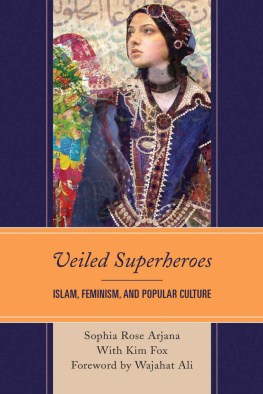
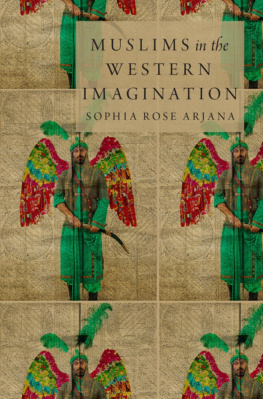
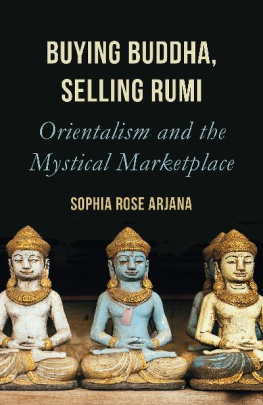

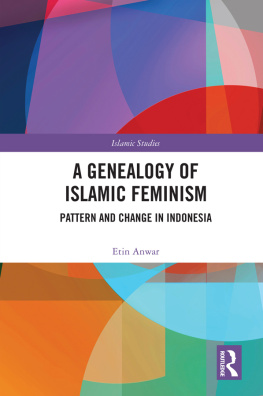
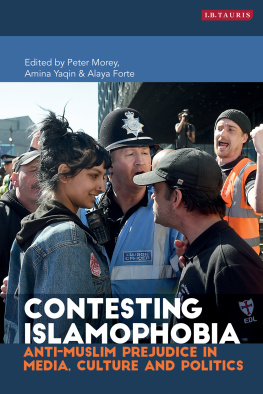
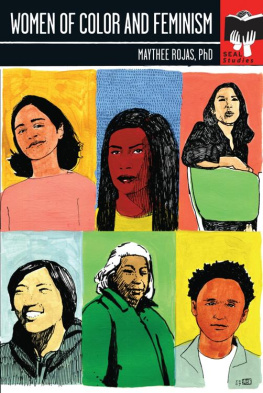
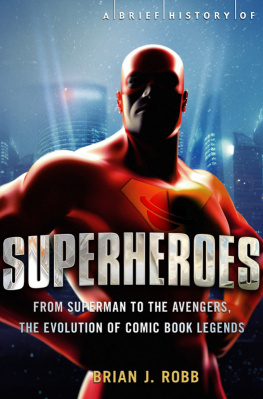
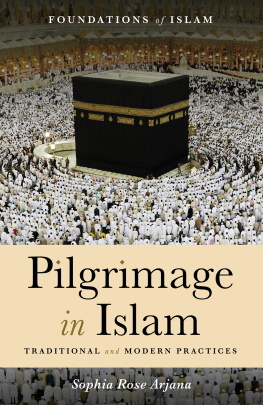
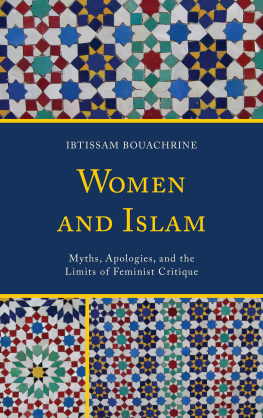
 The paper used in this publication meets the minimum requirements of American National Standard for Information SciencesPermanence of Paper for Printed Library Materials, ANSI/NISO Z39.48-1992.
The paper used in this publication meets the minimum requirements of American National Standard for Information SciencesPermanence of Paper for Printed Library Materials, ANSI/NISO Z39.48-1992.